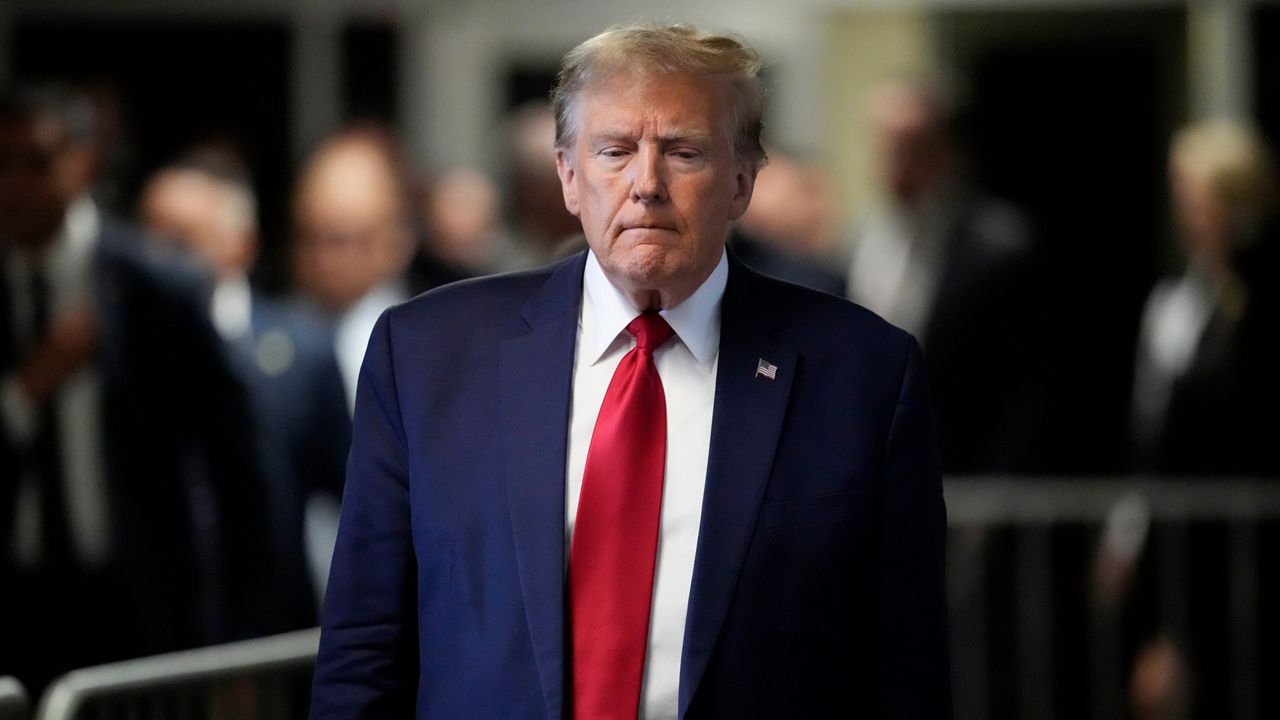Attorneys for former President Donald Trump on Monday asked the judge overseeing his New York hush money case to delay the start of the upcoming trial as the U.S. Supreme Court weighs his claim of presidential immunity.
"President Trump respectfully submits that an adjournment of the trial is appropriate to await further guidance from the Supreme Court, which should facilitate the appropriate application of the presidential immunity doctrine in this case to the evidence the People intend to offer at trial," the motion to to New York Supreme Court Judge Juan Merchan reads.
The case centers around alleged hush money payments to adult film star Stormy Daniels made during Trump's 2016 presidential campaign, to suppress her claims of an extramarital affair from years prior. Trump faces 34 felony counts of falsifying business records in the case. He has pleaded not guilty, and his attorneys sought to portray the payments to his former attorney and fixer Michael Cohen as legitimate.
The filing from Trump's attorneys doesn't argue that the charges should be dropped -- they are state charges and center around an event which took place from before he was president. Rather, they argue that prosecutors should not be able to put forth evidence which stem from Trump's time in office. Trump has argued before the nation's highest court that he should be shielded from criminal prosecution for official acts during his time in office.
Manhattan Judge Juan Manuel Merchan did not immediately rule on the motion.
A federal judge last year rejected Trump’s claim that allegations in the hush money indictment involved official duties, nixing his bid to move the case from state court to federal court. Had the case been moved to federal court, Trump’s lawyers could’ve tried to get the charges dismissed on the grounds that federal officials have immunity from prosecution over actions taken as part of their official duties.
“The evidence overwhelmingly suggests that the matter was a purely a personal item of the President — a cover-up of an embarrassing event,” U.S. District Judge Alvin Hellerstein wrote last July. “Hush money paid to an adult film star is not related to a President’s official acts. It does not reflect in any way the color of the President’s official duties.”
Trump’s lawyers appealed Hellerstein’s ruling, but dropped the appeal in November. They said they were doing so with prejudice, meaning they couldn’t change their minds.
The Supreme Court will hear arguments in Trump's immunity case on April 25, with a ruling possible in either June or July at the end of the high court's term. The New York trial is set to begin with jury selection on March 25, the first of four criminal trials against the former president to move forward.
Trump first made the immunity appeal in the federal election interference case against him, which is based in Washington, D.C., and alleges that he sought to overturn the results of the 2020 election and prevent the transfer of power to Joe Biden, which culminated in the Jan. 6, 2021, riot at the U.S. Capitol. Lower courts have roundly rejected Trump's immunity argument, but the Supreme Court late last month agreed to take up his appeal, setting the late April date for arguments last week.
Trump also faces a federal criminal trial in Florida over allegedly mishandling of classified documents at his Florida estate and hampering the federal government's efforts to retrieve them, as well as a case in Fulton County, Georgia, accusing him of working to overturn the state's election results in 2020.
Trump, the Republican presidential frontrunner, has pleaded not guilty to the 91 felony counts he's facing across the four criminal trials, baselessly accusing prosecutors of being politically motivated. He has sought to delay the trials until after November's presidential election.
The Associated Press contributed to this report.


